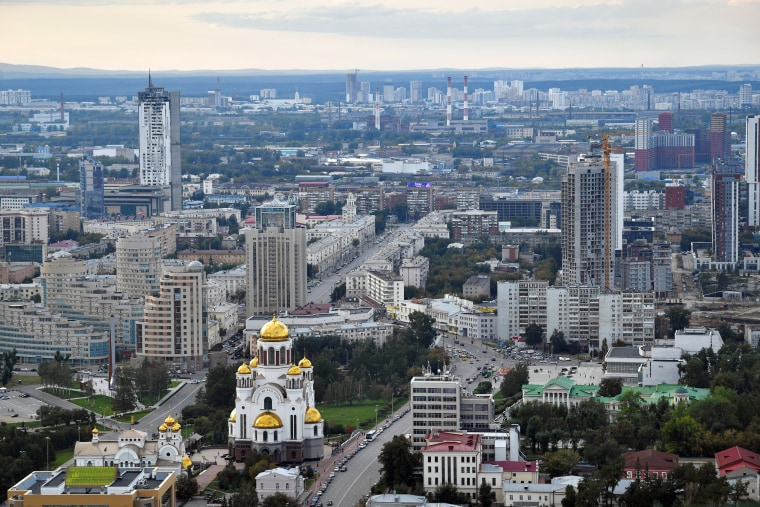December 12, 2023

OPEC building [Zamoto Media/Facebook]
by Reuters
Oil producer group OPEC has called on its members and allies to resist any attempts by the COP28 climate summit negotiations to target fossil fuels in its final agreement.
The language used in a final deal to describe the future of fossil fuels has become the most contentious issue at the UN summit, hosted this year by the United Arab Emirates.
Why does it matter for OPEC?
Members of the Organisation of the Petroleum Exporting Countries together control nearly 80 per cent of the world’s proven oil reserves and about a third of global daily oil production.
OPEC+, which includes allies such as Russia and Kazakhstan, controls an even bigger share of global crude reserves and production at about 90 per cent and 40 per cent, respectively.
The members rely heavily on oil and gas revenues as their main source of income.
Oil revenues averaged 75 per cent of total budget revenues of OPEC’s leader Saudi Arabia since 2010 and represent around 40-45 per cent of its GDP.
READ: As fossil fuel rift delays COP28, Arab energy leaders say oil here to stay
For other OPEC+ members, the share of oil and gas in the GDP varies between 16 per cent and 50 per cent. OPEC’s net oil export revenue stood at $888 billion in 2022, a 43 per cent rise vs. 2021.
Hence, any language that calls for the phasing out of fossil fuels threatens the model on which these oil- and gas-producing countries’ economies are built.
Where does OPEC stand on energy transition debate?
OPEC’s Secretary-General, Haitham Al Ghais, said in a letter dated 6 December to OPEC members and allies at COP28 that the world should target emissions rather than fossil fuels themselves.
On Friday, he said developing countries should be allowed to exploit their fossil fuel reserves.
“Energy transitions must be just, fair and inclusive,” he said.
OPEC believes oil demand will grow to 116 million barrels per day (bpd) by 2045 from 102 million bpd today. By contrast, the International Energy Agency, which represents industrialised energy consumers, sees oil demand declining to 93 million bpd by 2030 and 55 million bpd 2050.
The huge difference between the two forecasts shows an enormous gap in opinions about the required investment in fossil fuels needed to meet future energy demands.
Declining demand would reduce future income for oil producing countries. Eventually, this would impact their budgets and credit-worthiness.
OPEC warns that an enormous investment is needed to meet present and future oil and gas demand, and that sending policy signals that discourage investment in fossil fuels could lead to shortages and an increase in energy prices that would hit poor, energy import-dependent nations the hardest.
The UAE, the second Arab country to host the climate summit after Egypt in 2022 and an OPEC member, has said that a phase down in fossil fuels is inevitable and essential, but should be part of a comprehensive, thought-out energy transition plan that accounts for the circumstances of each country and region.
What else is at stake for OPEC+?
Some OPEC+ members, like the UAE, have made progress in diversifying away from oil by growing tourism and financial services. But the UAE would still lose half its budget income without oil.
For these countries, a fossil fuel phase-out would also pose a risk for the value of their oil reserves.
A rapid decline in demand could lead to the largest oil and gas reserves being rendered “stranded assets”.
The IEA has been predicting that the number of stranded oil and gas assets will rise renewable energy alternatives to become cheaper.
Major OPEC producers, such as Saudi Arabia, have the most competitive energy industries, thanks for cheap costs of oil extraction, and so are further than others from seeing their assets become stranded.
However, smaller OPEC+ members such as Nigeria, Algeria, Angola and Libya have lower quality reserves. They also rely heavily on Western energy majors to produce their oil, making those countries indirectly dependent to the willingness of major global banks to fund new fossil fuel projects.
“The future role of oil and gas in the energy mix has not yet been resolved, with the phase-out/phase-down debate proving to be one of the most controversial of the global convening,” RBC Capital Markets analyst, Helima Croft, said.
READ: New COP28 draft deal stops short of fossil fuel ‘phase out’













